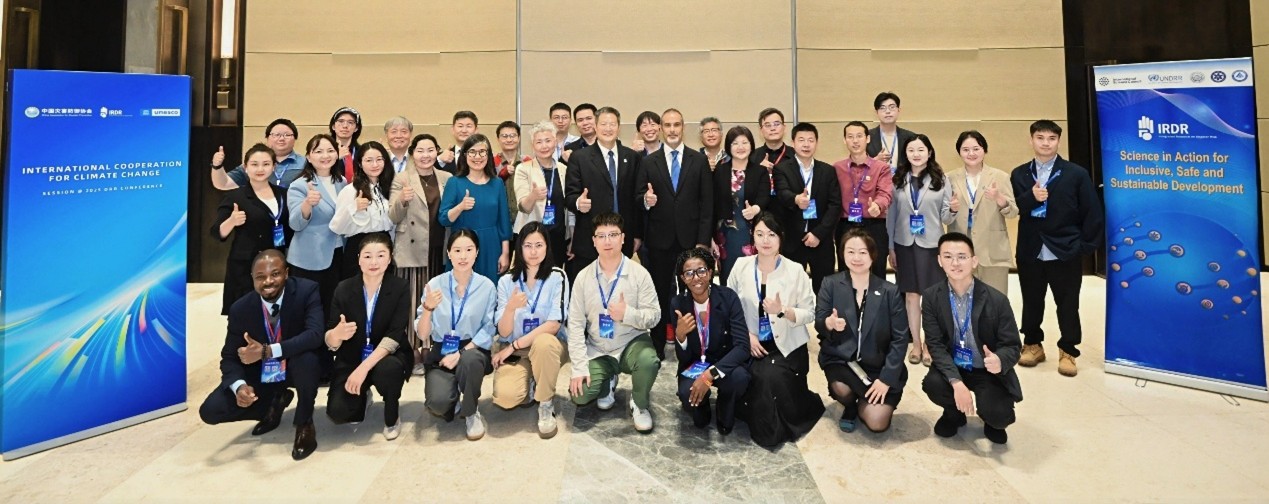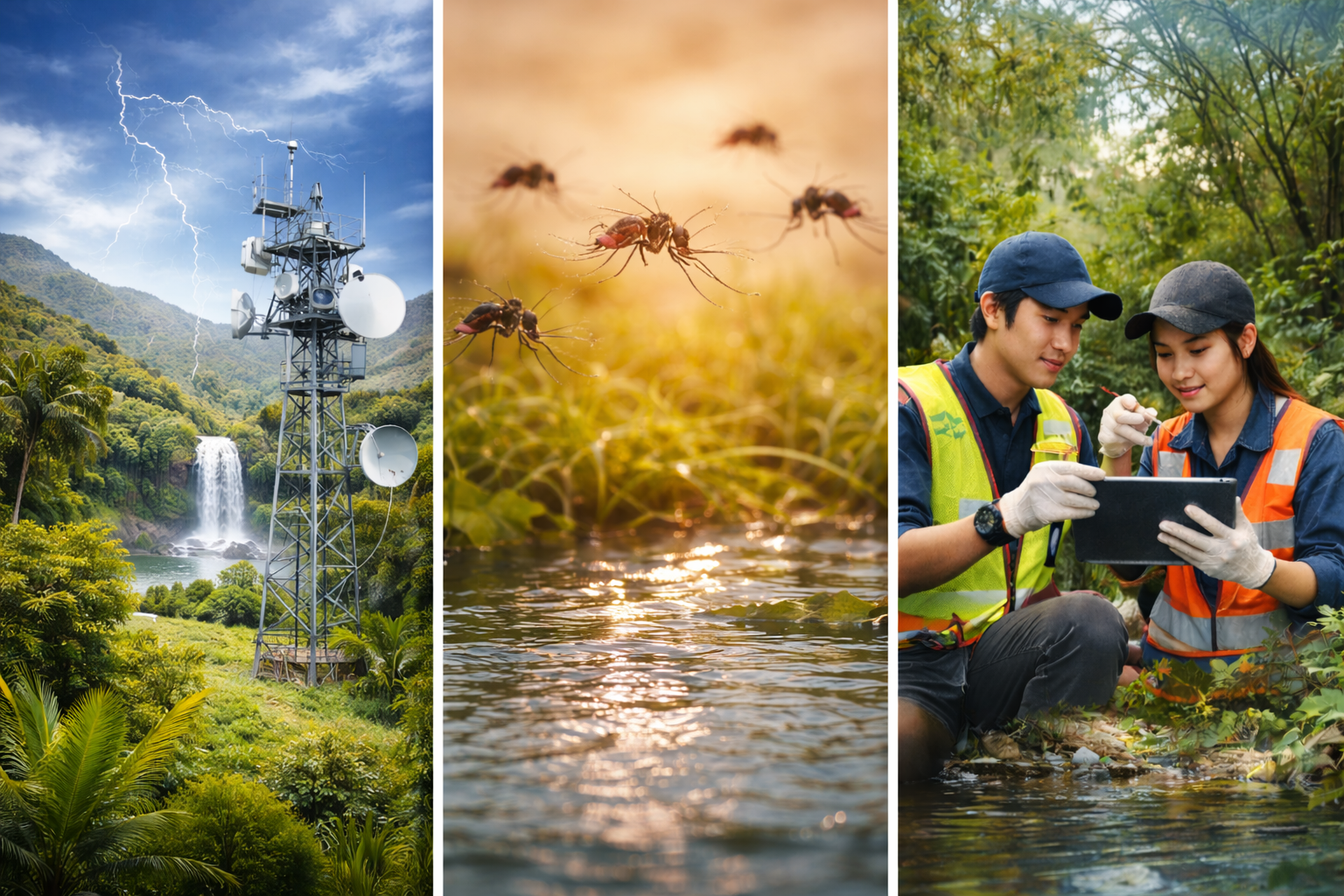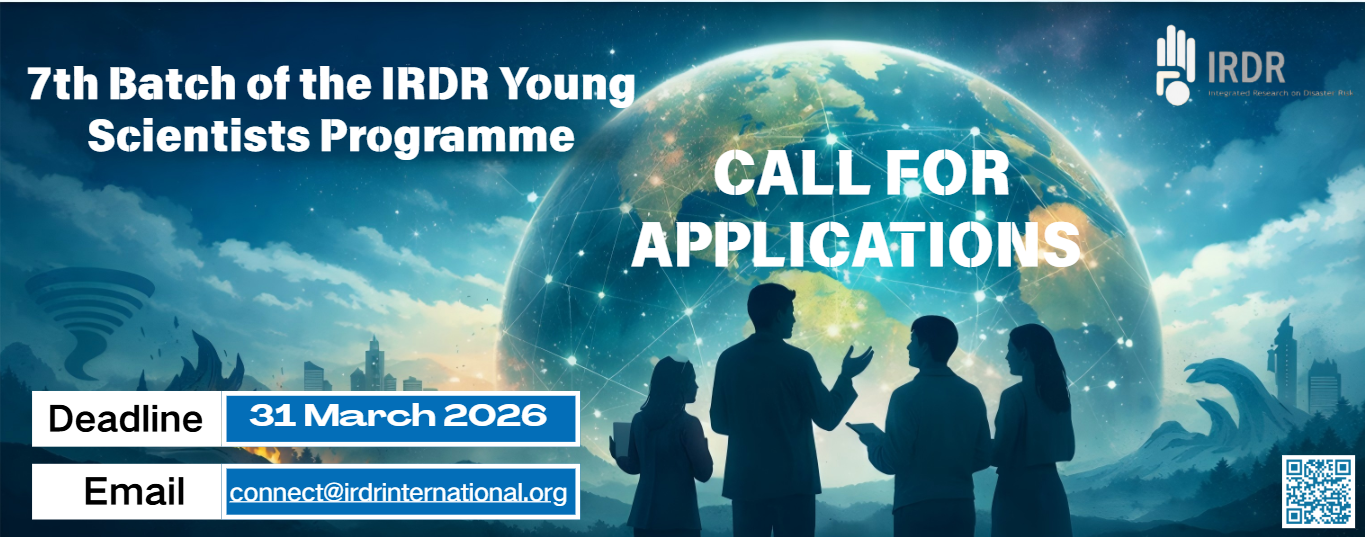On April 28, 2025, the 2025 Disaster Risk Reduction (DRR) Conference grandly commenced at the Hangzhou International Expo Centre in China. Held under the theme "Empower Disaster Risk Reduction Innovations, Promote New Quality Productive Forces", the two-day conference aimed to enhance global disaster risk management by fostering innovation, promoting DRR technologies, and strengthening international cooperation. A key highlight was the sub-forum co-organised by IRDR and UNESCO titled “International Cooperation for Climate Change”. This forum brought together experts and scholars from all over the world to discuss the importance of comprehensive research on disaster risk and cultural heritage in the context of climate change and the need for international cooperation.

The forum commenced with opening remarks from the moderator, Professor Saini Yang, Executive Director of IRDR, who emphasized the urgent need for strengthened international cooperation among all stakeholders. She further advocated for the integration of cultural heritage protection into climate change mitigation strategies. Welcome addresses were delivered by Yong Yu, Vice President of the China Association of Disaster Prevention; Marco Toscano-Rivalta, Chief of the UNDRR Regional Office for Asia and the Pacific; and Shahbaz Khan, Director of the UNESCO Regional Office for East Asia.
In his speech, Vice President Yu Yong said that through the Memorandum of Understanding (MoU) with IRDR, the China Disaster Control Association will further participate in global disaster reduction cooperation and share China's experience with the international community on the issue of cultural heritage and climate change. Marco Toscano-Rivalta called upon participants to become agents of change in Disaster Risk Reduction, climate change mitigation and saving loss of cultural heritage to disaster risks. He stressed that disaster risks are projected to increase by 40% by 2030 if proactive measures are not taken, which will largely affect cultural heritage,. He highlighted the growing severity of climate-induced disasters like extreme fires and urged the adoption of multi-hazard approaches and localised DRR solutions. Shahbaz Khan, for his part, stressed that global policymaking must take full advantage of regional and local experiences in order to effectively protect cultural heritage, which is increasingly threatened by climate change.
Experts from academia shared cutting-edge research results. Professor Li Min of Ritsumeikan University reported on the climate threats faced by World Heritage sites, pointed out that climate disasters are the main destructive factors, and advocated strengthening research on climate change adaptation measures that integrate traditional culture. Professor Ye Tao of Beijing Normal University reviewed 35 years of comprehensive research on disaster risk, shared the complexity of disaster risk research in the context of climate change, and emphasized the importance of international collaboration and multidisciplinary cooperation for cultural heritage. Dr. Otgonpurev Sukhbaatar, University of Life Sciences of Mongolia, presented the severity of the impact of climate disasters in Mongolia's pastoral areas and the resilience of communities in their communities. Professor Tian Bingwei of Sichuan University introduced how to establish a dynamic disaster monitoring and early warning system dedicated to heritage sites, to improve disaster early warning and response capabilities and protect heritage more effectively. Professor Donghyun Kim of Jeonju University in South Korea demonstrated the damage caused by wildfires to Korea's cultural heritage, and the potential of innovative disaster prevention technologies such as 360-degree sprinkler systems and new fireproof materials in wildfire response. Lai Weihong, a PhD student at Beijing Normal University, discussed the role of folklore and traditional narratives in risk perception and disaster recovery, highlighting the importance of culture in disaster risk perception and response. Professor Dong Wei of Southeast University suggested strengthening the three-dimensional digital archiving of cultural heritage and using new technologies to help the post-disaster recovery and reconstruction of cultural heritage. Professor Kei Kano (Shiga University, Japan) offered a cross-cultural perspective, comparing Western and Eastern philosophies on humanity’s relationship with nature. He advocated for disaster solutions that are aligned with nature and rooted in ecological balance.
During a roundtable discussion moderated by Professor Han Qunli, Senior Scientific Advisor of IRDR, experts engaged in an in-depth discussion on the intersection of cultural heritage protection and disaster risk management in the context of climate change. The panel emphasized the critical role of international collaboration in fostering innovation and advancing integrated approaches to disaster risk reduction and heritage preservation. They highlighted the importance of incorporating local traditional knowledge and cultural contexts into disaster mitigation strategies to ensure relevance, sustainability, and community ownership. The panel also emphasized the need to enhance scientific and technological innovation to strengthen the resilience of cultural heritage sites against multiple hazards. A significant concern raised was the existing communication gap between the scientific community and the public. Experts advocated for leveraging local cultural narratives and contexts to translate complex scientific information into accessible language, thereby promoting widespread community engagement and improving public awareness of disaster risks and climate resilience.
In a subsequent closed-door session moderated by Duong Bich Hanh, Programme Specialist and Chief of Culture Unit at UNESCO Regional Office for East Asia, and Lian Fang, Science Officer at IRDR, international experts convened to explore concrete mechanisms and collaborative projects for enhancing the protection of cultural heritage in the face of climate change. The session identified four key priority areas for future cooperation, each addressing critical intersections between culture, science, and climate resilience. These include; (1) Improving cultural heritage assessment of vulnerability and resilience by integrating community and socio-economic data, (2) Bridging traditional and scientific knowledge through frameworks and policy integration, (3) Using advanced technologies for heritage monitoring while leveraging community-driven tools and (4) Ethical data governance and promoting the role of culture in climate action through education, grassroots initiatives, and policy engagement. These priorities will shape joint efforts by IRDR, UNESCO, and partners to integrate cultural heritage safeguarding into broader climate adaptation and disaster risk reduction strategies. IRDR and UNESCO will continue to promote multi-stakeholder collaboration to integrate the protection of cultural heritage into the global disaster risk research framework. Through special research projects, seminars, training, and science popularization, we will deepen exchanges and cooperation with partners from all parties and strive to build a more resilient and sustainable common home for mankind.





